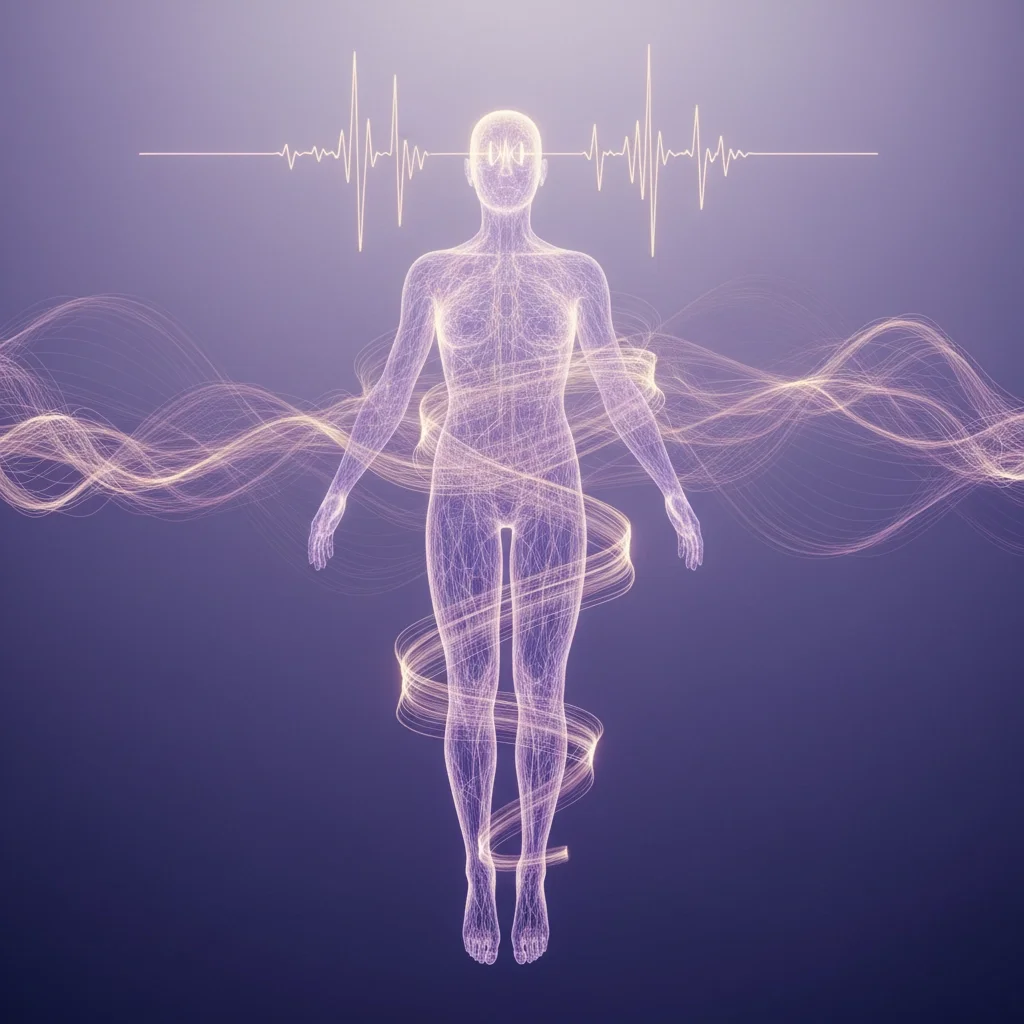Does Virtual Hypnotherapy Really Work? What Science Says About Online Healing
Picture this: You're sitting in your favorite chair, laptop open, about to start a hypnotherapy session with someone who's hundreds of miles away, when your skeptical brain kicks in.
Can this really work? Isn't hypnosis something that requires... I don't know... being in the same room?
I get it. I really do.
The idea of virtual healing can feel like we're trying to hug through a screen, technically possible, but somehow... less?
But here's what the science actually says: Virtual hypnotherapy isn't just effective. In many cases, it's just as powerful as sitting across from your therapist in person.
And sometimes? It's even better.
Your Brain Doesn't Know the Difference
Here's the thing about your subconscious mind, it's surprisingly bad at distinguishing between "real" and virtual experiences.
Think about it. Have you ever watched a movie and felt your heart race during a chase scene? Your body responded as if you were actually being chased, right? Same principle applies to hypnotherapy.
Your brain processes the hypnotic experience whether your therapist is sitting three feet away or three time zones away.
The trance state is happening in YOUR mind. The hypnotherapist is just the guide.
But What About the "Energy" Thing?
Okay, let's address the elephant in the room.
Many people worry that virtual sessions lack that mysterious energetic connection. You know, that je ne sais quoi that happens when two people share physical space.
Here's what I've discovered through years of working with clients both in-person and virtually: The connection isn't about proximity. It's about presence.
When you're fully engaged in a virtual session: camera on, distractions minimized, intention set: the therapeutic alliance can be just as strong. Sometimes stronger, because...
The Comfort Factor Changes Everything
Many of my clients actually go deeper in virtual sessions.
Why? Because they're in their own sacred space. Their favorite chair. Their cozy living room. That corner where they feel most safe.
There's no anxiety about finding parking, no stress about running late, no wondering if the person in the waiting room can hear your session through thin walls.
Comfort breeds openness. Openness breeds transformation.
A 2025 systematic review in the Journal of Medical Internet Research found that digital therapy performs comparably to face-to-face therapy, with no evidence of one being superior overall.
The Technical Magic Behind the Screen
So how does it actually work?
Even though your eyes are closed during hypnosis, your hypnotherapist can still read crucial cues through video. Body language. Facial micro-expressions. Even the subtle rapid eye movements behind closed lids that indicate trance depth.
We can see your healing happening in real time.
What About the Limitations?
Look, I'm not going to pretend virtual hypnotherapy is perfect for everyone.
Some people genuinely need that physical presence. Some have home environments that are too chaotic. Some struggle with technology in ways that create barriers rather than bridges.
And that's totally okay.
The goal isn't to convince everyone that virtual is superior. It's to recognize that for many people, it's an incredibly effective option that opens doors that might otherwise stay closed.
Think about it: someone living in a rural area with no local hypnotherapists. Busy moms who can only seem to find time for themselves on their lunch break. Someone with mobility challenges that make travel difficult.
Virtual hypnotherapy doesn't replace in-person work: it expands possibilities.
The Physiological Reality
Here's what's happening in your body during a virtual hypnotherapy session:
Your nervous system is downshifting into that beautiful parasympathetic state: the "rest and digest" mode where healing actually happens. Your brainwaves are shifting toward theta frequencies. Your subconscious is becoming more receptive to positive suggestions and new neural pathways.
None of this requires physical proximity.
Clinical hypnosis has demonstrated clear benefits for anxiety reduction, depression treatment, sleep improvement, and pain management. These benefits translate beautifully to virtual environments because the hypnotic state is an internal experience.
Your Transformation Awaits
So here's what I want you to consider:
Maybe the question isn't "Does virtual hypnotherapy work?"
Maybe it's "Am I ready to experience what's possible?"
Because here's the truth: your healing doesn't require you to sit in my office. It requires you to show up, wherever you are, ready to do the work.
The science is clear. The results speak for themselves. The technology is here.
The only question left is: Are you ready to transform from the comfort of your own space?
If you're curious about transformational hypnotherapy and what it might look like for you, I'm here. Your healing journey doesn't have to wait for the "perfect" circumstances.
Sometimes the most powerful transformations happen when we meet ourselves exactly where we are: even if that's on the other side of a screen.
What do you think? Ready to explore what virtual healing might hold for you?






